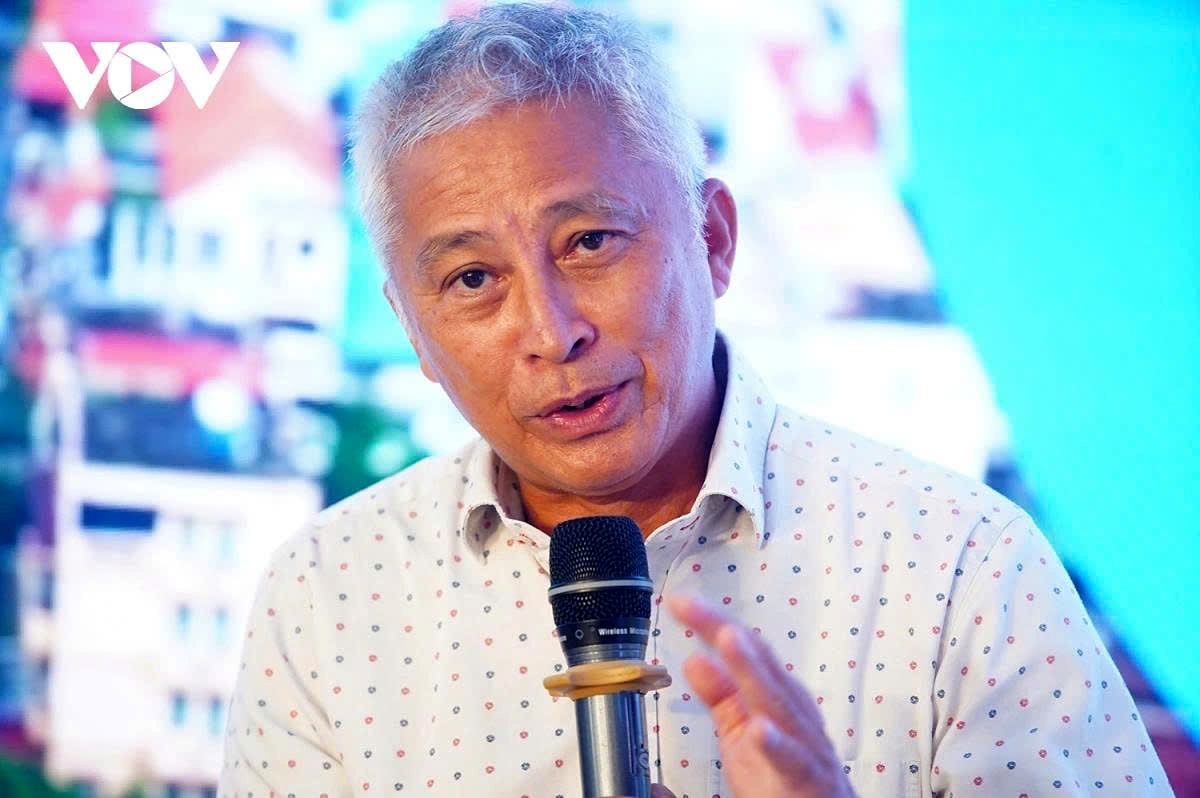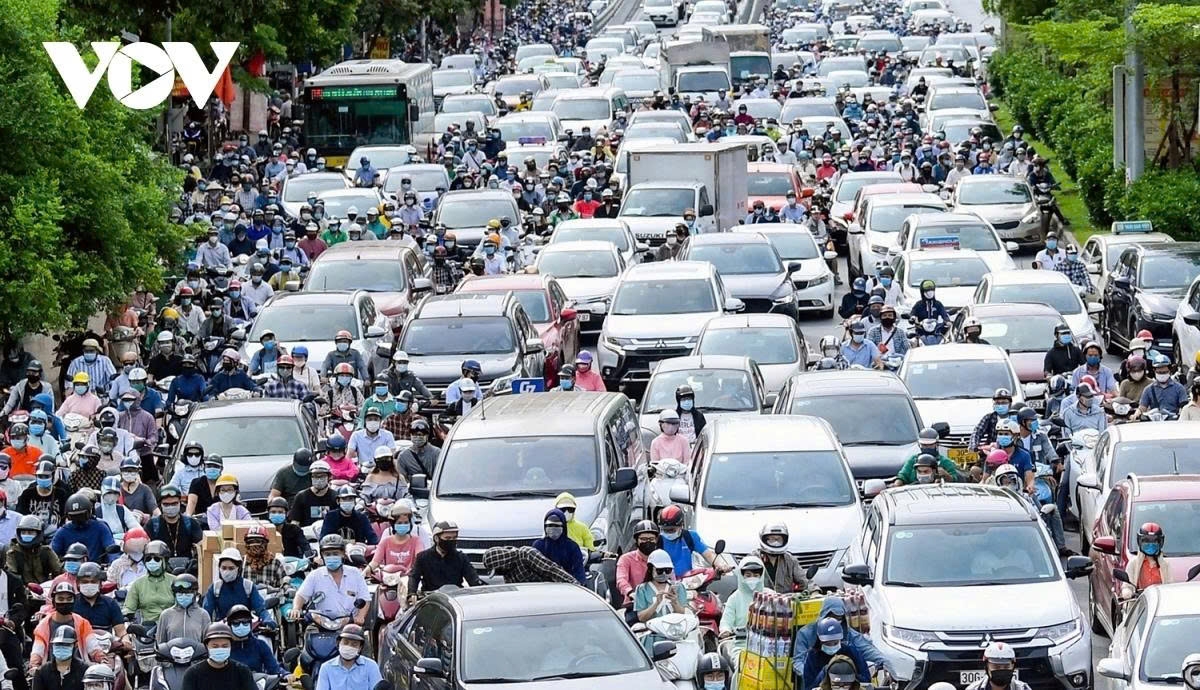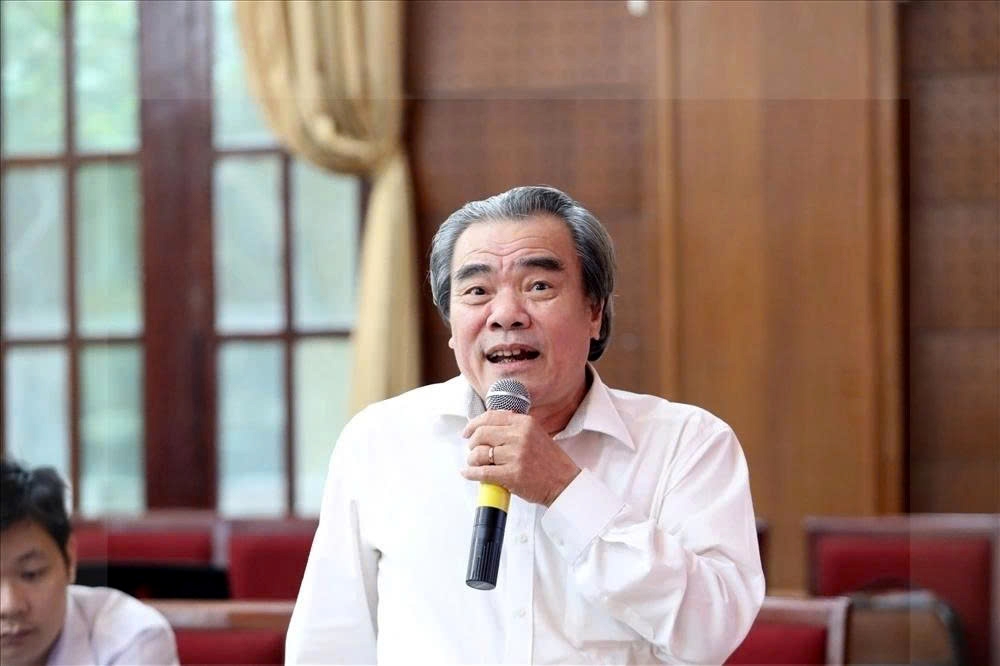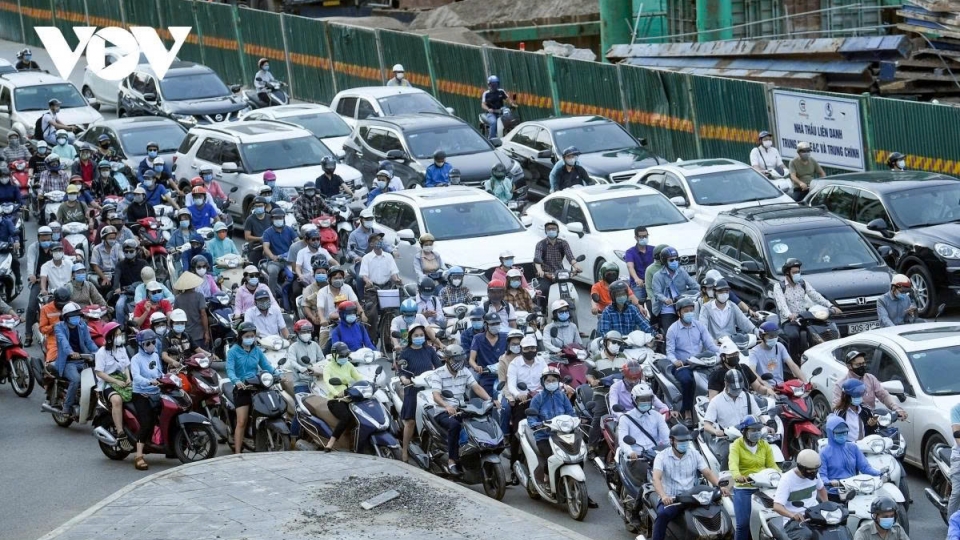Hanoi motorbike ban: Experts back plan, suggest support measures
VOV.VN - Experts have expressed support for the Prime Minister’s directive mandating a ban on petrol-powered motorbikes and mopeds in downtown Hanoi, and at the same time, made recommendations to help the city adapt during the transition process.
Under the Prime Minister’s recently-issued directive, petrol-powered motorbikes and mopeds will be banned within Ring Road 1, the core urban zone, starting July 1, 2026. The policy will be expanded to cover Ring Roads 1 and 2 by January 1, 2028, and will also apply to fuel-powered cars, with full implementation expected by 2030.

“This is a much-needed and timely commitment by the Government to address air pollution. With this directive, the entire area within Ring Road 1 can effectively be considered a low-emission zone,” says Dr. Duong Hoang Tung, head of the Vietnam Clean Air Network.
In his opinion, with less than a year remaining until the July 1, 2026 deadline, Hanoi must act swiftly, intensify public communication efforts, and especially focus on developing support measures for residents.
“I believe millions of motorbikes will likely need to be replaced. The city authorities must seriously consider how to assist affected residents. In addition to vehicle exchange programmes run by private companies, the State needs to introduce direct support policies for citizens,” he suggests.
Assoc. Prof. & Dr. Bui Thi An, former member of the National Assembly’s Committee on Science, Technology and Environment, expresses her agreement with the roadmap to ban petrol-powered motorbikes, saying the Prime Minister’s directive meets the broader national trend of addressing environmental issues.
“Hanoi is densely populated, with air pollution levels nearing alarming thresholds. Traffic is one of the major contributors to this pollution. Given these circumstances, I believe the directive is entirely appropriate” remarks Dr. An.

However, she reminds that Hanoi must develop a well-designed implementation roadmap to ensure that the interests of its residents are balanced and protected. She suggests allocating substantial funding to support vehicle replacement for citizens and investing in the necessary infrastructure for electric vehicles.
Echoing the same viewpoint, economist Vu Dinh Anh affirms that banning petrol-powered motorbikes from the area within Hanoi’s Ring Road 1 is entirely necessary, as a means of reducing environmental risks, given the fact that Hanoi is currently among the most polluted cities in the world.
According to the expert, the policy will primarily affect residents living within the Ring Road 1 area, as well as commuters from outside the zone who travel there for work. Given the scope and affected groups, he believes a one-year roadmap is sufficient for both citizens and businesses to prepare.
“This policy reflects a global trend that many countries are already adopting, and we must commit to implementing it. There is no evidence proving that motorbikes pollute more than cars, so the policy must be designed to apply broadly, avoiding discrimination that could cause public backlash, especially since motorbike users outnumber car users,” he notes.

Prof. Dr. Tu Sy Sua, senior lecturer at University of Transport and Communications, emphasises that for this policy to be effectively implemented, a carefully designed roadmap must be accompanied by a series of concrete legal and infrastructure solutions. In his opinion, banning petrol-powered motorbikes must be paired with a wide range of supportive and surrounding measures.
“We cannot ban petrol-powered motorbikes in isolation. This must go hand-in-hand with improvements to the public transport system, such as clean-energy buses and metro lines, as well as the provision of affordable, convenient parking facilities,” he explains.
He also recommends financial incentives for citizens to exchange old bikes for electric ones and called for a joint effort between manufacturers, the government, and consumers to expand electric vehicle charging infrastructure.
“The goal is commendable, but the implementation must be synchronized, transparent, and people-centred. If people see real benefits and more convenient mobility, they will willingly comply rather than feel forced to do so,” he says.





